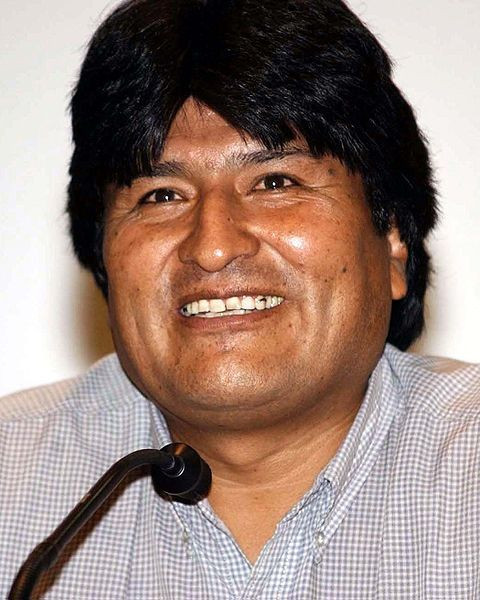
The Bolivian constitutional court has ruled that Evo Morales will be eligible to compete in presidential elections in December 2014, for what would be his third term as president. Morales, Bolivia's first indigenous president, first entered office in 2005 and helped enact a new constitution which limits presidents to two terms. The court says that as the constitution was ratified in 2009, Morales is currently serving his first term under it and thus is eligible to seek another.
Opposition leaders disagree with the ruling. The Guardian quotes Samuel Doria Medina, leader of the center-right National Unity party, as saying that the constitution is "very clear" in stating that a president can only be reelected once. "If Evo Morales wants a second re-election he should have to change the constitution again," Medina said.
The opposition leader also wrote on his Twitter, "Evo Morales can seek re-reelection through the Constitutional reform and the referendum, but he's afraid of the people."
The nine members of the Constitutional Tribunal, which made the decision, assumed their positions in January 2012 and will remain there for six years. According to the newspaper Clarín, the tribunal has in the past come down against Morales' government, but the opposition considers it overly sympathetic to Morales' government.
The debate over whether or not Morales should be able to seek reelection for a third term first came about this past February, when a survey by the daily Página Siete indicated that 54 percent of the public supported the reelection of Evo Morales. Another survey, this one by El Deber, indicated this past Sunday that "41 percent of voters would elect Evo Morales, while 53 percent would not, if the elections were today".
The Guardian notes that Morales has garnered a reputation for being unpopular among many international investors for his nationalizations of private companies, part of his effort of exerting greater state control over the economy. Yet Wall Street credit rating agencies qualify his fiscal management as sound, and applaud his building up of record central bank reserves.
In the past year, Morales has nationalized three major Spanish-owned companies: SABSA, which runs Bolivia's three biggest airports and was taken over this past February; in December, electricity distribution subsidiaries of the energy company Iberdrola; and in May 2012, Red Electrica, which owned and ran almost three-fourths of Bolivia's power grid. Previously Morales had moved to claim a greater state stake on hydrocarbon companies, power generators, and the country's largest telephone operator. Morales says the nationalizations are part of an effort to restore Bolivia's natural resources and basic services to its citizens.
© 2025 Latin Times. All rights reserved. Do not reproduce without permission.




